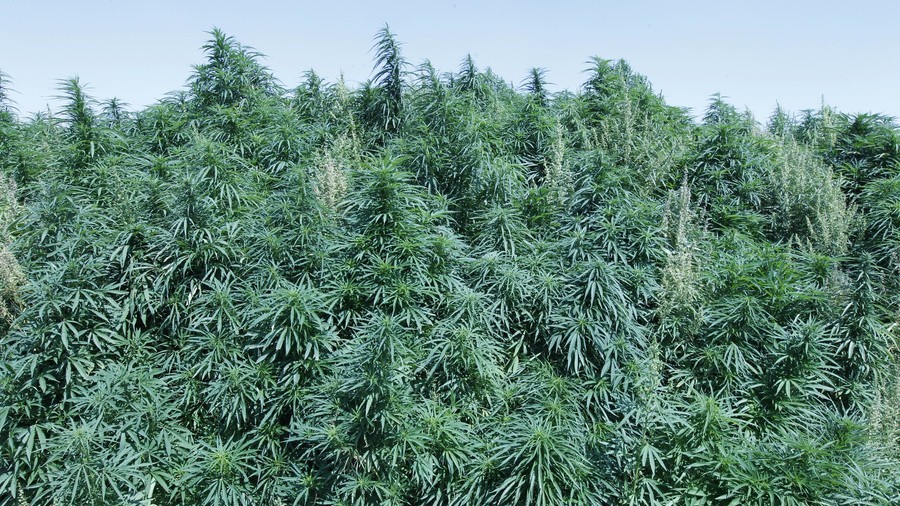Governor-elect Tim Walz said he’s in favor of legalizing recreational pot late last week—a sign of approval from the state’s future chief executive and a break with his fellow Democrat, sitting Gov. Mark Dayton, who has opposed legalization.
The question remains if legalized recreational cannabis—an issue gaining momentum across the nation—will become a reality, possibly sooner rather than later in Minnesota. Pundits have pointed to the issue as potentially prompting a power struggle in the nation’s only split Legislature.
While Walz’s statements are noteworthy coming from the mouth of the state’s soon-to-be highest executive, he has shown public support for legalized recreational marijuana since at least September of last year—when Walz was in the early stages of his gubernatorial campaign.
However, politicians representing the Brainerd lakes area—all of them members of the Republican party—aren’t as high on the prospects of legal pot. While Walz may be able to lean on the DFL majority in the state House to enact his vision, his opposition in the Republican-led Minnesota Senate could present a possible roadblock should legislation come down the pipe.
According to a Gallup poll released Oct. 22, 66 percent, or 2 in 3 Americans—a majority reflected across every age, ethnic and political demographic—are in favor of legalizing marijuana for recreational purposes. Support for legalization has seen a rapid surge in recent years after decades of pro-cannabis activism, garnering 44 percent in the 2008 Gallup poll and breaking the 51 percent majority threshold in 2012.
Recreational pot is legal in 10 states and in Washington, D.C. A total of 33 states, including Minnesota, allow medical marijuana. Legal recreational weed has had a mixed reception in the Midwest in 2018—a year that saw Michigan legalize it through a ballot measure, while North Dakota voters struck it down.
Among the first states of the union to legalize recreational marijuana, Colorado’s cannabis industry in 2017 generated more than $1 billion in sales and $200 million in tax revenue.
This money, diverted from the “Marijuana Tax Cash Fund,” has been used to fund school lunches, mental health care, drug addiction treatment, housing programs and other initiatives across the state.
The Dispatch contacted state Sens. Paul Gazelka, R-Nisswa, and Carrie Ruud, R-Breezy Point, as well as state Reps. Josh Heintzeman, R-Nisswa, John Poston, R-Lake Shore, and Dale Lueck, R-Aitkin, to determine where they stand on the issue.
Roll call
• Lueck, state representative for District 10B, said it’s irresponsible to place supposedly high—and unguaranteed—increases in tax revenue over negative social impacts to communities’ automotive safety, mental health and crises of addiction. He’s against legalizing marijuana for recreational purposes.
“I don’t support it. There is a moral limit to what you would be doing to collect tax money and that crosses a red line with me. Like it or not, despite what you hear, (marijuana) is just another gateway to a life of misery,” Lueck said. “It just doesn’t pass the sanity test to legitimize something that we know it is not healthy for adolescents and younger people.”
• Heintzeman, state representative for District 10A, said there’s a great deal of false information that drives the pro-legalization movement. In reality, marijuana use is destructive and harmful—evidenced, in part, he noted, during his work with Adult and Teen Challenge, a faith-based addiction treatment program.
“Based on feedback I get (knocking on) doors, I’ve always been a ‘no’ for recreational use,” Heintzeman said. “Families got enough stuff going on. I have concerns that could play out negatively in Minnesota. There’s a lot of debate on whether it’s been positive or negative in places where it’s been legalized. I think the jury’s still out on that.”
• Poston, state representative for District 9A, said he is not in favor of recreational cannabis at this time, though he is looking to do further research on the subject.
“Three states in particular that I’m looking at are Colorado, California and Washington state,” Poston told the Dispatch. “I’m looking at what the overall effect of recreational cannabis has been and trying to formulate an opinion and formulate how I will vote when it comes up on the floor because I do believe it will come up for debate in this upcoming session.”
• Ruud, state senator for District 10, said she’s worried the issue of recreational marijuana legalization (along with gun regulations and the gas tax) will overshadow and hamper more pertinent and productive bills on tax conformity and balancing the two-year budget. She is not in favor of legal recreational cannabis—evidenced, she noted, by struggles to fill shortages in a workforce hamstrung by addiction.
“I think that’s devastating to the workforce,” said Ruud, who noted the issue’s playing out negatively in her own field as a real estate broker. “We multiply that problem—people not being able to pass the drug test for their jobs. The other drugs are frowned on, not so much recreational weed. Would you want your machinist, or your electrician, or the construction workers, not being able to pass a random drug test?”
• Gazelka, majority leader and state senator for District 9, has previously said he is not in favor of legalized recreational cannabis and suspects it harbors negative impacts on Minnesota communities, though he advocates further study and a committed dialogue on the subject.
“It’s important to consider the many negative consequences that come with legalizing recreational marijuana,” Gazelka told the Dispatch in a statement. “Car accidents and addiction rates have increased in states that have legalized it, health care costs are expected to rise because it makes people more vulnerable to disease and mental health issues and it has serious negative effects on adolescent development. We must have a long conversation about these real consequences.”
Reaching a verdict
• Automotive safety has factored in the discussion. According to research between 2012 and 2018 by the Insurance Institute for Highway Safety and the Highway Loss Data Institute, the frequency of collision claims filed to insurers were higher in four states where marijuana is legal—namely, Colorado, Nevada, Oregon and Washington. Researchers compared the results of these states against four control states where marijuana remains illegal: Idaho, Montana, Utah and Wyoming.
A separate study—conducted by the Insurance Institute for Highway Safety focused on police-reported crashes before and after retail marijuana was allowed in Colorado, Oregon and Washington—saw a 5.2 percent increase in the rate of crashes per million vehicle registrations, compared with neighboring states.
Although, the studies noted, THC (the principal psychoactive compound in cannabis) can be detected for days, weeks or longer periods of time after initial consumption and long after the substance has any affect on a person’s physical abilities or mental acuity. Thus, it’s difficult to pinpoint just how much legalized cannabis use is directly correlated to these collisions.
• Marijuana use has been linked to spikes in psychiatric disorders—particularly for certain subsets of the population with a genetic proclivity—such as anxiety, depression and schizophrenia, according to separate studies by the National Institute on Drug Abuse and the International Review of Psychiatry.
While a 2017 report by the National Council for Behavioral Health indicated there was no increase in the number of people who sought treatment for cannabis addiction after legalization in Colorado, money spent on law enforcement and social services to address mental health issues increased after legalization—to the tune of $23 million in Pueblo County, Colo., for example, where the population is about 160,000.
However, according to the study conducted by Colorado State University-Pueblo, the county also took in $58 million in taxed marijuana sales during that time frame, essentially paying for these services and further garnering a $35 million net gain.
• In terms of adolescent usage, according to the National Survey on Drug Use and Health—an annual nationwide survey—teen marijuana use declined in all but one of the five states that had legal weed from 2014 to 2016.
However, usage among young adults, aged 18-25, increased during that time frame.
• Marijuana legalization has been linked to decreases in crime. According to a June 2017 study in the Economic Journal, there are indications violent crimes and associated deaths decreased in states bordering Mexico on account of decreased demand for the illicit marijuana trade with Mexican cartels.
According to a study published in the Journal of Economic Behavior and Organization in February 2018, legalized pot in Washington coincided with a notable decrease in violent and property crimes in the state in comparison to neighboring Oregon, where pot was still illegal at the time. The same study indicated, while marijuana consumption rose, binge-drinking alcohol and consumption of other “hard” drugs including cocaine, methamphetamine and heroin decreased.
Credit: brainerddispatch.com












